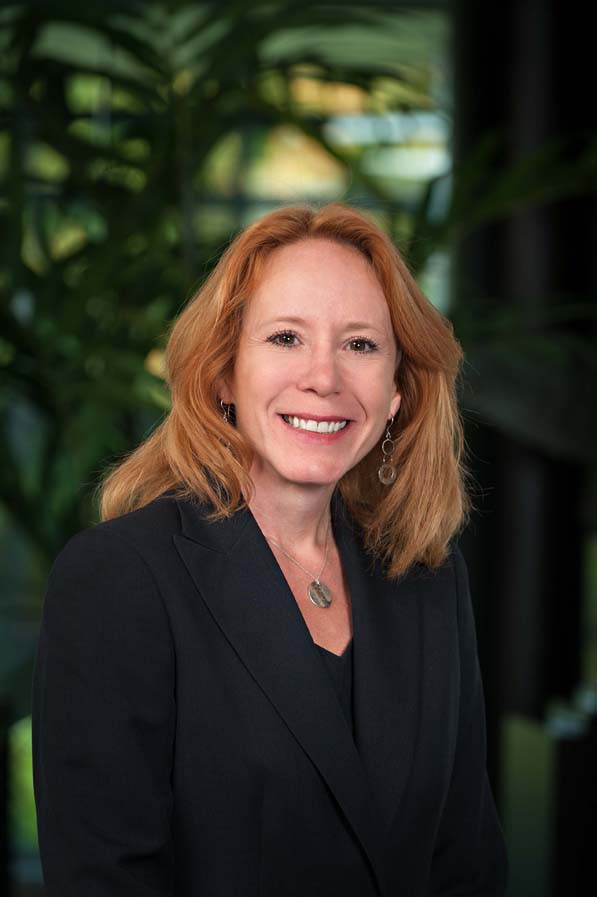When facing the storms of economic shortfall, banks are seen as both the brigands and the guardians of economic vitality.As the president and CEO to Atlanta’s Citizens Trust Bank (CTB), Cynthia Day is making it her goal to upend this dissension and put the “community” back in community banking. “Being a community bank is our brand; it’s who we are,” Day says. “The bank that knows its customers, and knows the communities it serves, is invaluable.”
While larger national and corporate banks have the potential to offer larger financial portfolios, the anonymity of large banking relationships is part of what lent itself to the economic crises beginning in 2008. Community banking—the point of origin for corporate banking—recaptures the idea of banking, eschewing anonymity for positive community relationships and user engagement. “The bigger you get, the more the community needs become diluted,” Day says. “Especially in the midst of this economic downturn, we are an integral part of the fabric that will help the revitalization of our communities.”
Informed by an accounting and finance background, Day began working at the Citizens Federal Savings Bank of Birmingham in 1993, after six years working for KMPG. By 2003, Day had become the executive vice president and first female COO of Citizens Federal, and, after negotiating a merger with the Atlanta-based CTB, the Birmingham bank was acquired by CTB and Day relocated to Atlanta, becoming the first female COO for CTB in 2005. When James Young, the president and CEO of CTB passed in February 2012, Day assumed the position, aiming to deliver on the community emphasis practiced by CTB since its founding in 1919—where it was the first bank to serve African-Americans in and around the Atlanta area. CTB currently has 11 banks and total assets of approximately $400 million.
Citizens Trust Bank
Facts & Figures
11
Total CTB locations
$400 million
CTB net value
1919
Year CTB was founded. It was the first bank to serve African-Americans in and
around the Atlanta area
While history has progressed over the past century, meeting the financial needs of individuals and small businesses remain as integral as ever for ensuring the economic vitality of the community. Under Day’s
administration, CTB has programs such as the Good Corporate Citizen Initiative that not only serve to repair the public’s trust of the banking industry, but promote financial management for individuals and small businesses throughout the community.
As an extension of this initiative, CTB created the Financially Informed Training (FIT) program, which serves to inform the community about the pitfalls of alternative banking. “We’ve asked all of our financial centers [branches] in our neighborhoods to adopt churches, schools, nonprofits, and government agencies where we try to roll out these FIT programs, because we feel that this training is an integral part of not only preparing our future generations—and current generations—to be more informed about their choices for more cost-effective banking solutions,” Day says.
The bank also participates in local workforce development programs, informing at-risk youth about preparing themselves for futures in the business and financing worlds. “We allow these high-school aged youth to come into our organizations to mentor them in all types of areas—not just in business, but life skills as well,” Day says.
In addition to these educational programs, CTB champions an active small-business initiative, as part of the federal Small Business Jobs Act, which set aside $1.5 billion for state-run programs that support small businesses. “We stepped up to the plate for this program, because we recognize the importance small businesses play in revitalization and the restart of the economic engine in the communities we are serving,” Day says. “We hope to see some wonderful results from this program, and not just from providing benefits to the small businesses, but actually seeing these communities begin to be revitalized.”
CTB is also attempting to engage more “underbanked” individuals—people who keep their savings in cash or who choose to use higher-cost and ultra-high-risk alternative banking. “For this program, we’ve put together a ‘CTB Choice’ suite of products, which offers the community a choice for getting into mainstream banking,” Day says. “We understand that these people are a part of our community, and we want to offer them solutions that meet their needs in a more cost-effective way.”
The disparities of the economic crises—of which we are still in the midst—continue to determine the public’s relationship with banking institutions. Fostered partly by public distrust of big banks, more users are turning to community banking. The community offered by banks like CTB does well to restore trust and, in the long term, promote community well-being. “The process within community banking is a lot more streamlined than bigger banks, which means we can act quicker and more efficiently,” Day says. “It’s important to have people from the bank in the community who are not just doing business, but who are a part of the solution for a thriving community.”

